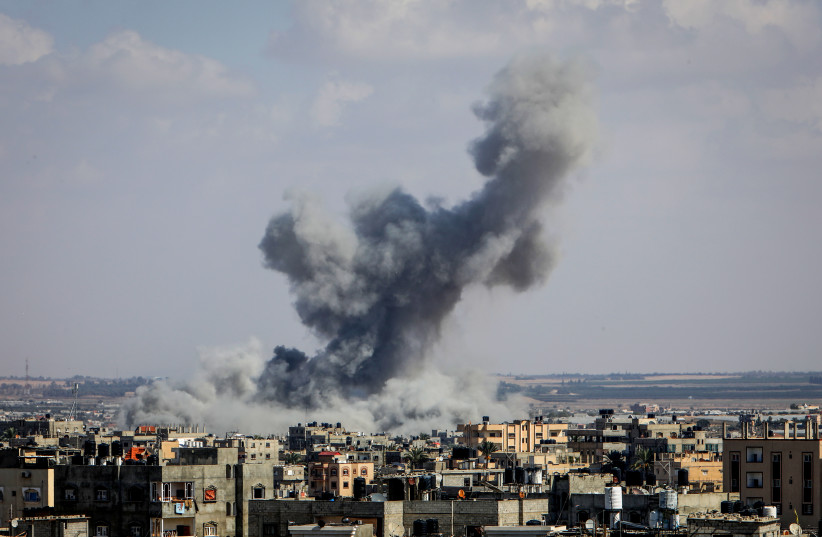Defense Minister Yoav Gallant on Friday became the first Israeli official to outline both Israel’s war plans and post-war plans for Gaza.
Speaking to the Knesset Foreign Affairs and Defense Committee, Gallant described the war and post-war era in three stages, although he did not elaborate in significant detail.
Currently, he said the IDF is still in the first stage of using air power and long-distance attacks on Hamas, with a ground invasion on the way.
The defense minister then presumed the IDF’s ground invasion would broadly defeat Hamas forces, creating a new reality in which the IDF is the overwhelming power in Gaza, ending the first stage.
In the second stage, Gallant said the IDF would need to fight a counter-insurgency battle at lower levels. This would include resisting smaller guerrilla warfare tactics by Hamas and other jihadist groups, who may have faded into the civilian population but intend to resist on an on-and-off basis at strategic moments and using asymmetric tactics, such as hit-and-run methods.

An uphill struggle
Presuming the IDF eventually stamps out these guerrilla warfare problems or reduces them sufficiently, Israel would then seek to “remove from itself responsibility over life in Gaza and creation of a new security reality for the citizens of Israel and for the residents of Gaza.”
The defense minister’s comments scored many firsts.
He was the first official to openly acknowledge that Israel is likely to face an extended insurgency using guerrilla warfare tactics even after it “wins” the impending ground invasion.
He clarified more than any prior official that Israel will not, or does not want to, reconquer and permanently occupy Gaza.
Crucially, Gallant’s version of a plan is still missing one critical element: who can manage Gaza once the IDF gives up control – the Palestinian Authority, the UN, another multinational force, or a hybrid of all of the above – and whether the IDF would try to maintain some outer presence or security zones within Gaza even as it gave up control of civilian affairs.
Previously, National Security Council chief Tzachi Hanegbi was the first to mention an international dimension to running Gaza after the IDF’s ground invasion, but Gallant’s program, with all of its remaining gaping holes, was far more detailed.
